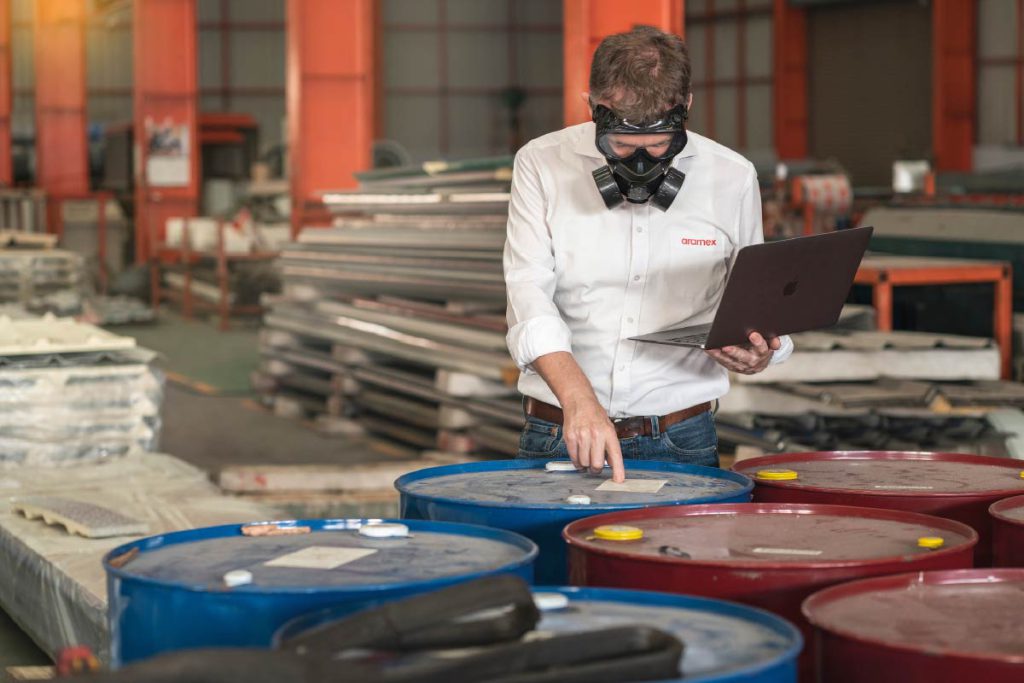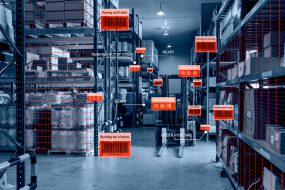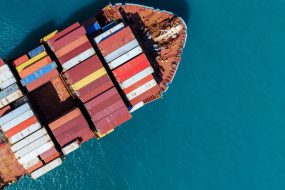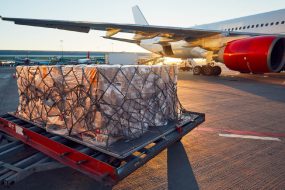If there’s one thing that defines the oil and gas industry, it’s movement — vast quantities of materials constantly flowing across global supply chains. But not everything that moves is straightforward. A significant portion of what’s transported in this industry is hazardous cargo — flammable, toxic, or corrosive materials that demand meticulous handling and precision logistics.
Managing these hazardous goods isn’t just about ticking boxes on a safety checklist. It’s about protecting people, the environment, and the reputation of every business involved. And as supply chains grow more complex, the role of a logistics solution provider has never been more vital.
Related Reading: Logistical challenges in oil and gas – and how to solve them
What Counts as Hazardous Cargo?
When we talk about hazardous goods in oil and gas logistics, we’re referring to materials that can cause harm if mishandled — whether through fire, explosion, chemical reaction, or contamination. Some of the most common examples include:
- Flammable liquids: Think petrol, diesel, and crude oil. These substances can ignite easily, requiring strict safety measures during transport and storage.
- Gases: Compressed or liquefied gases like natural gas and propane need specialist containment and constant monitoring to prevent leaks or pressure build-up.
- Industrial chemicals: Used across drilling, refining, and processing, these include corrosive or toxic compounds that can harm both people and ecosystems if spilled.
For logistics in oil and gas companies, managing these materials safely isn’t optional — it’s fundamental to keeping operations running smoothly and sustainably.
Why Safe Handling Matters
Every link in the oil and gas supply chain depends on reliability. A single incident involving hazardous cargo can lead to shutdowns, fines, and severe environmental damage. That’s why logistics solution providers must go beyond compliance — building systems that prioritise safety, precision, and real-time awareness.
This involves:
- Following international and local regulations (like those from the International Maritime Organization or the Department of Transportation).
- Investing in staff training and certification.
- Continuously updating safety procedures as technologies and regulations evolve.
Put simply, effective oil and gas logistics depends on a mix of experience, innovation, and accountability.
Related Reading: Sustainable logistics: new trend in oil and gas supply chain
The Challenges of Transporting Hazardous Goods
Even for the most seasoned operators, managing hazardous cargo comes with unique challenges. Here are three of the biggest:
1. Navigating Regulations
Every country — and sometimes every port — has its own set of rules for packaging, labelling, and documentation. A logistics solution provider must not only understand these regulations but also maintain detailed records to prove compliance. One misstep can result in serious penalties or safety breaches.
2. Managing Risk
Transporting hazardous materials always involves risk, but those risks can be managed. The key lies in identifying potential hazards early, assessing the likelihood of incidents, and putting proactive safeguards in place. Advanced tracking systems and regular safety audits help providers stay ahead of problems, not just react to them.
3. The Right Tools and Training
Handling hazardous goods requires more than just caution — it demands the right equipment and expertise. From reinforced containers to pressure-controlled systems, every detail matters. Meanwhile, ongoing training ensures that staff understand not only how to use this equipment but also how to respond quickly if something goes wrong.
Best Practices for a Safer Supply Chain
The most reliable logistics in oil and gas companies share a few things in common — disciplined safety cultures, cutting-edge technology, and strong collaboration across teams.
Here’s how the best in the business do it:
1. Invest in Continuous Training
Everyone involved in the transport and handling of hazardous goods should be trained — and retrained — regularly. Training programmes should cover handling, storage, and emergency procedures, keeping pace with evolving technologies and regulations.
2. Use Technology to Stay Ahead
Technology is transforming how oil and gas logistics are managed. Real-time tracking, IoT sensors, and advanced logistics software allow providers to monitor cargo conditions continuously. Some even use blockchain to ensure total transparency across every stage of transport.
3. Have a Solid Emergency Response Plan
No matter how well-prepared you are, incidents can still happen. A clear, well-tested response plan ensures quick communication, defined roles, and rapid action when it matters most. Regular drills help teams respond effectively and confidently under pressure.
Related Reading: Smarter logistics for remote energy sites


Why Partnering with the Right Logistics Solution Provider Matters
For oil and gas companies, working with an experienced logistics solution provider can make all the difference. These partners bring:
- Specialist expertise in handling complex, high-risk cargo.
- Access to advanced tracking and monitoring technologies.
- Established safety protocols that meet global standards.
Their support goes beyond transport — it’s about managing risk, ensuring compliance, and keeping your supply chain resilient.
Related Reading: Unpacking the secrets: Logistics’ pivotal role in oil and gas success
Key Takeaway: Responsible today, safer tomorrow
Hazardous cargo is part of everyday life in the oil and gas industry — but managing it safely requires precision, partnership, and innovation.
By combining expert knowledge with advanced technology, logistics providers are helping oil and gas companies build safer, more sustainable supply chains. The result? Fewer risks, smoother operations, and a stronger reputation for safety and reliability.
As energy demand continues to rise, the industry’s ability to move hazardous goods responsibly will define not just its success — but its future. Partner with Aramex to move hazardous goods safely and sustainably.




